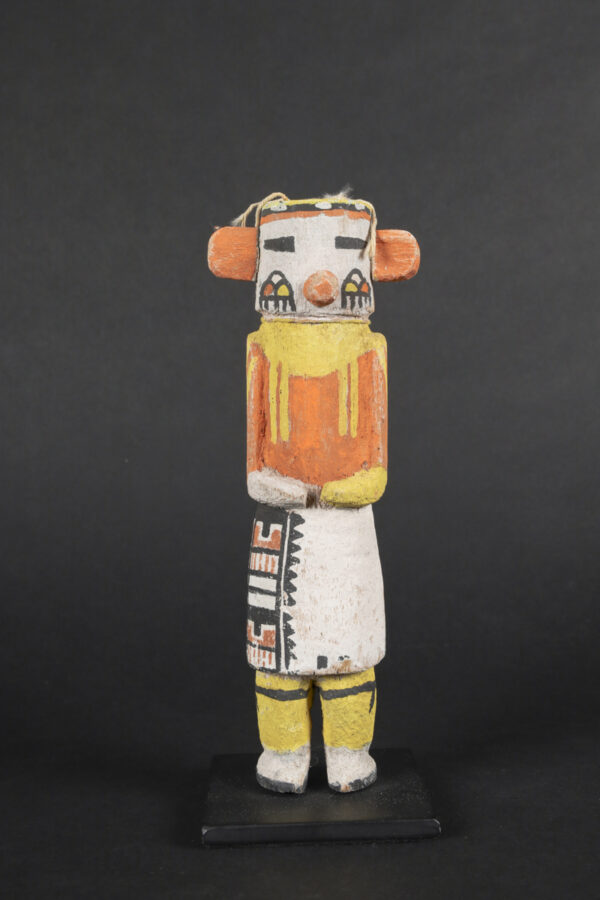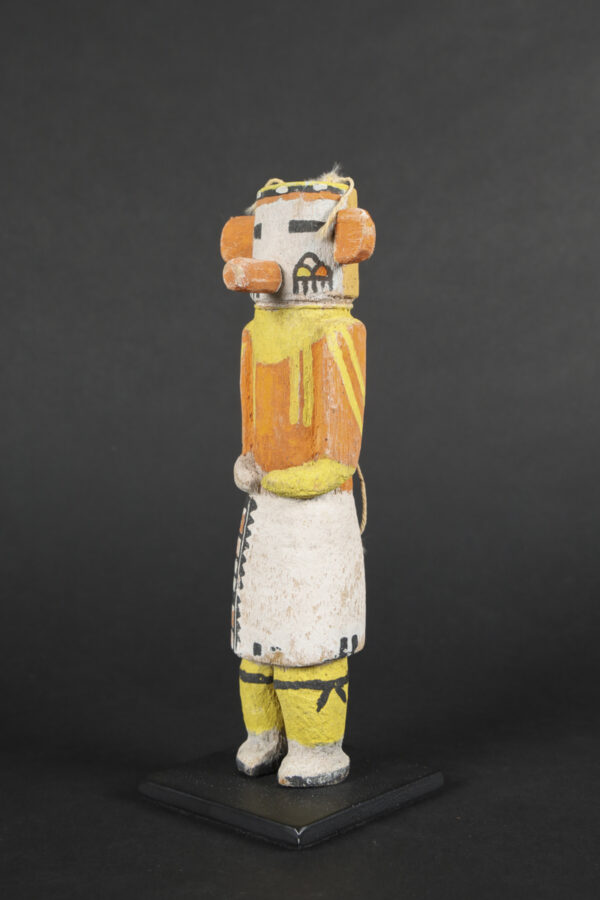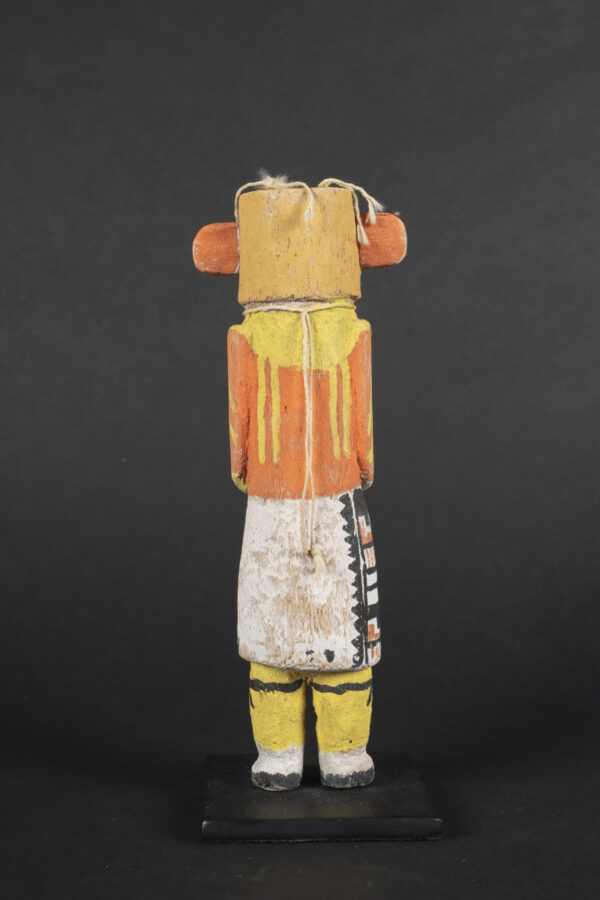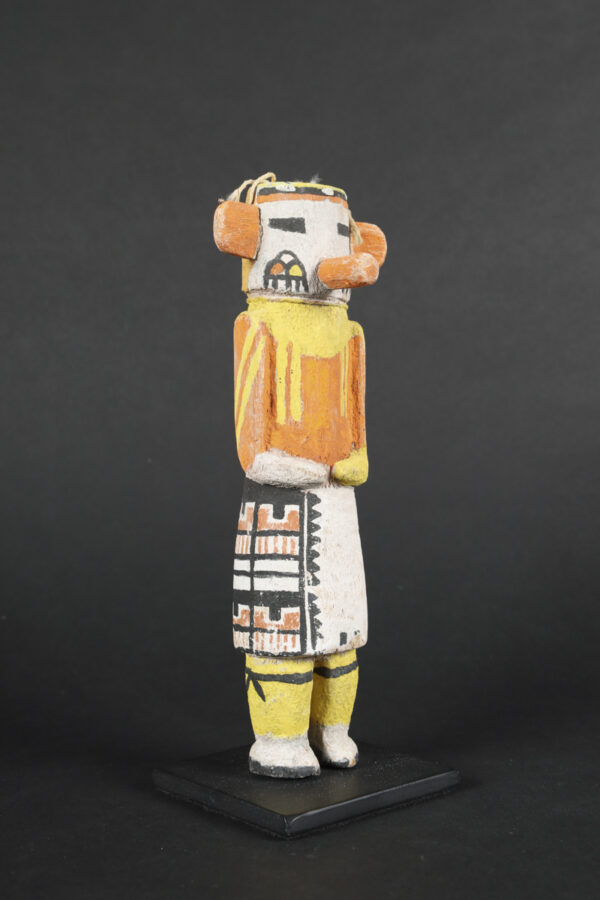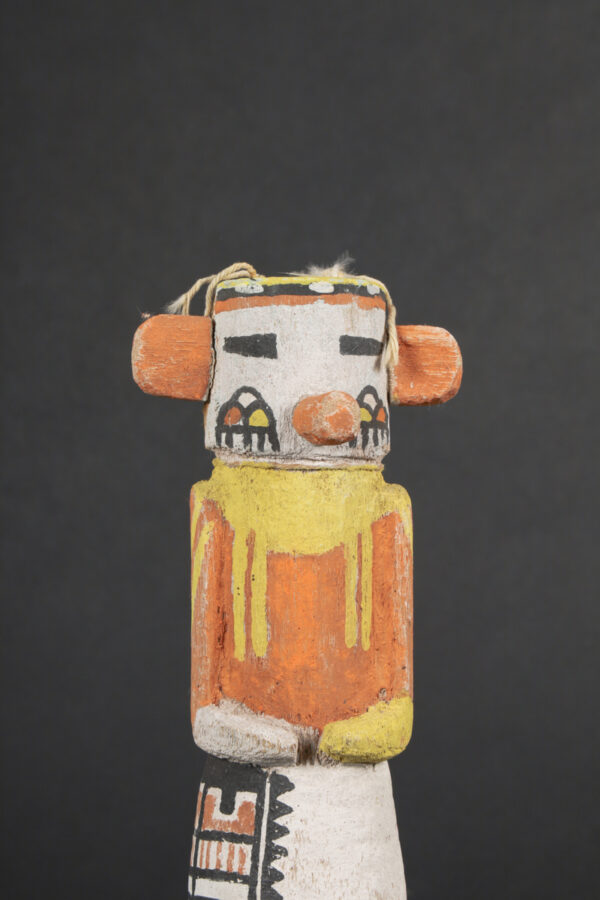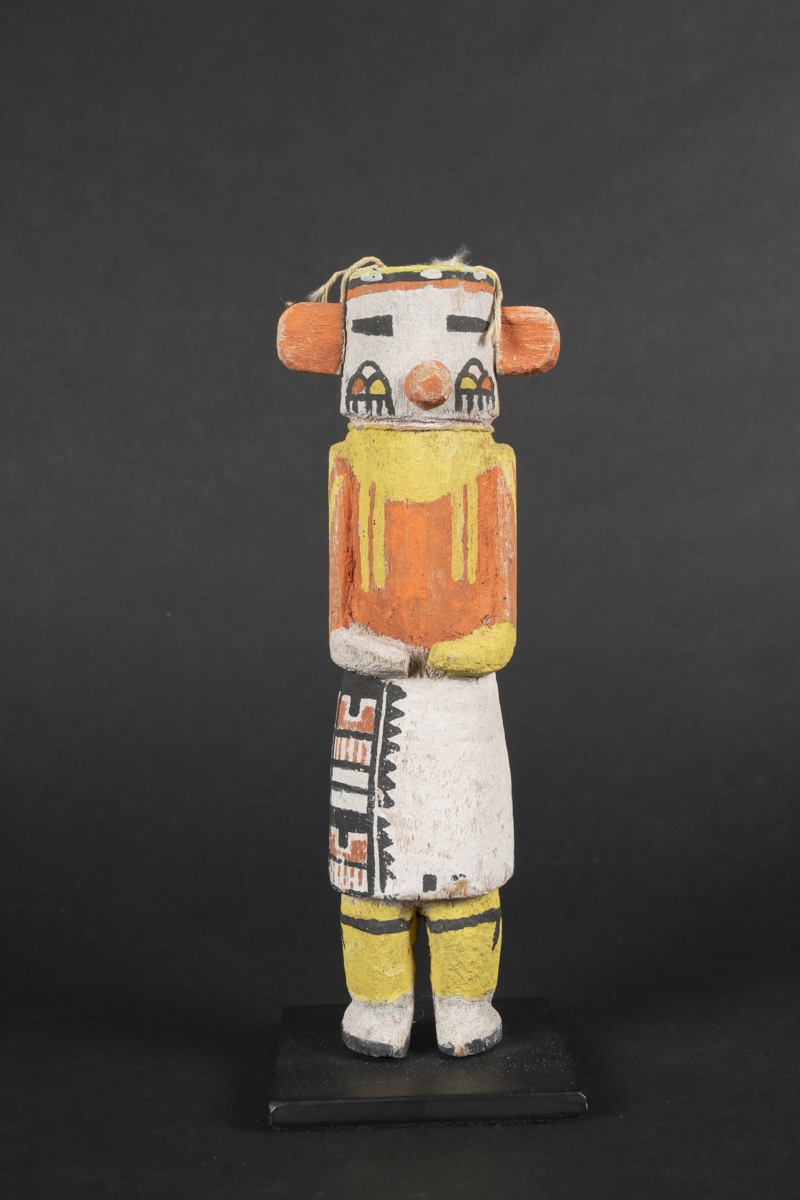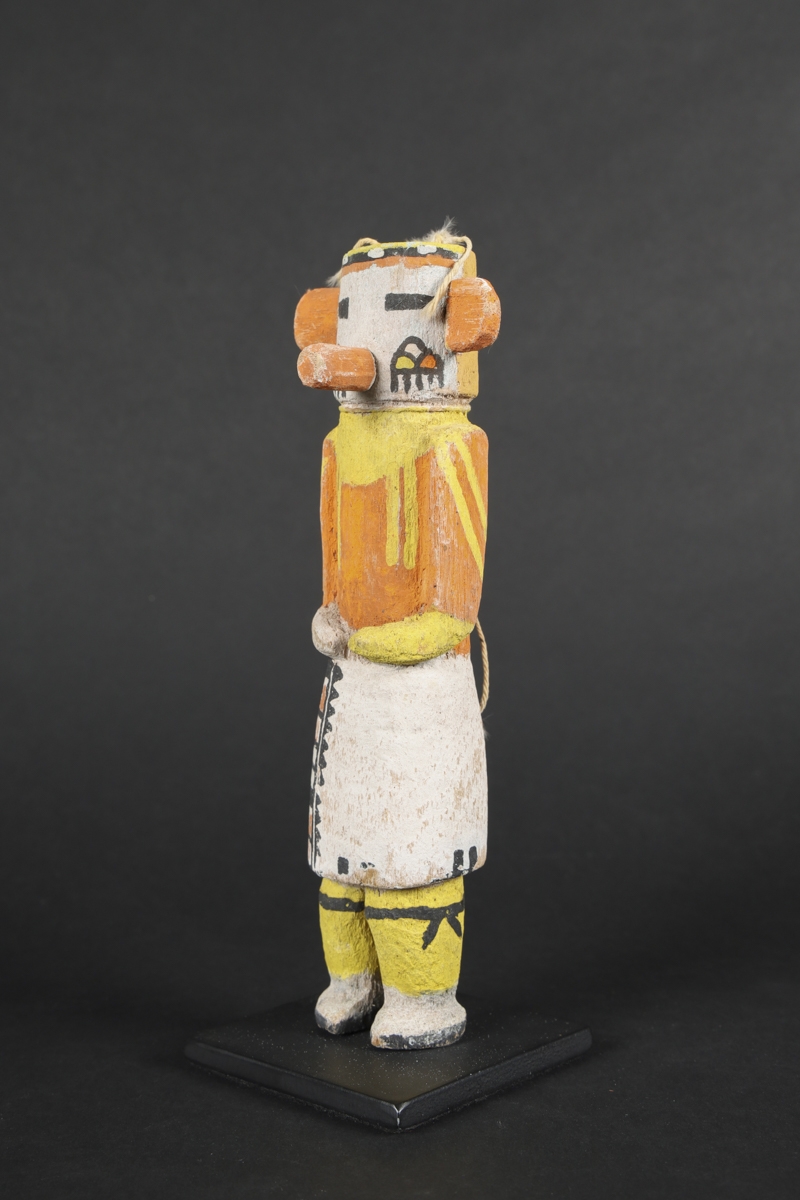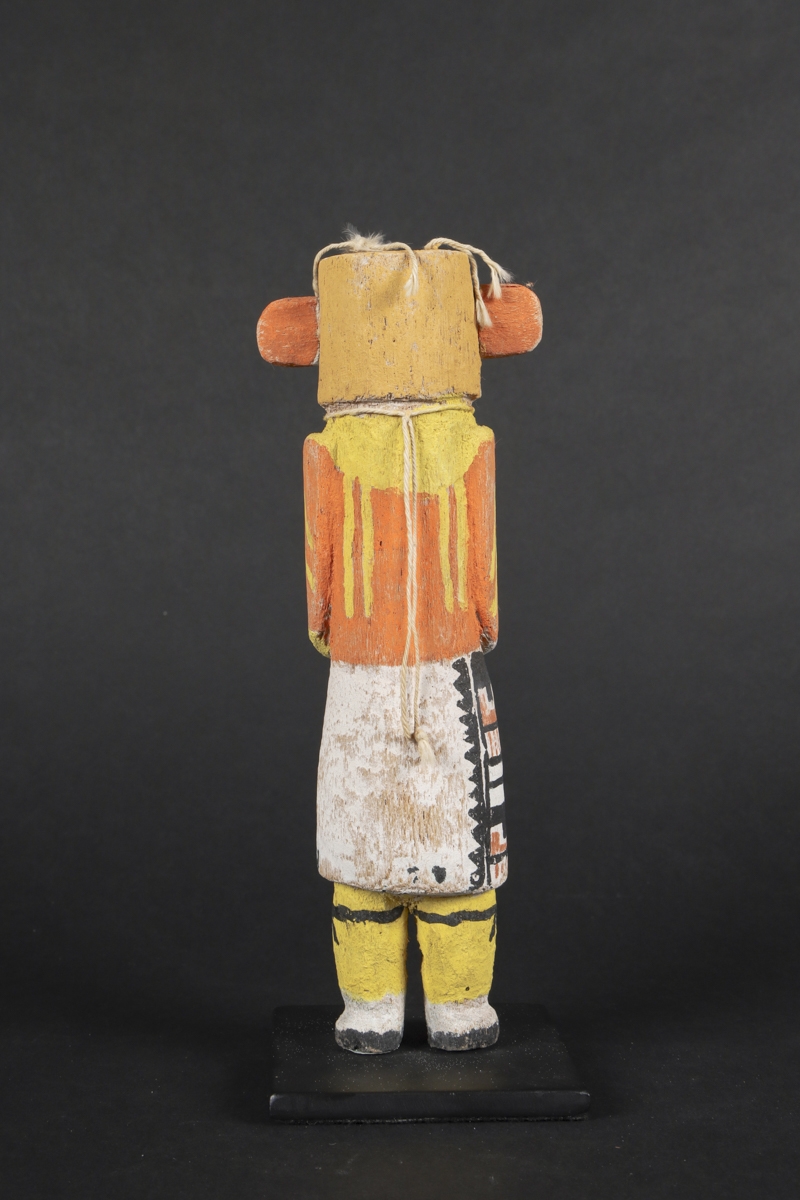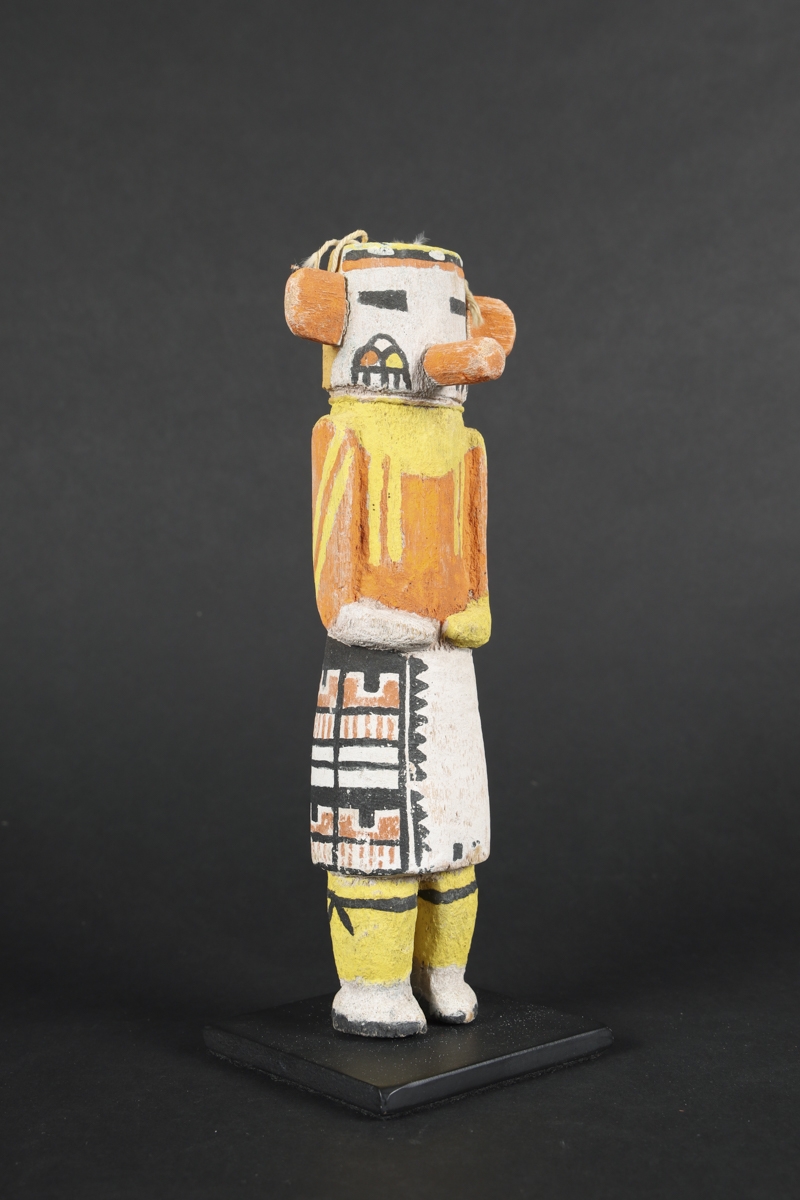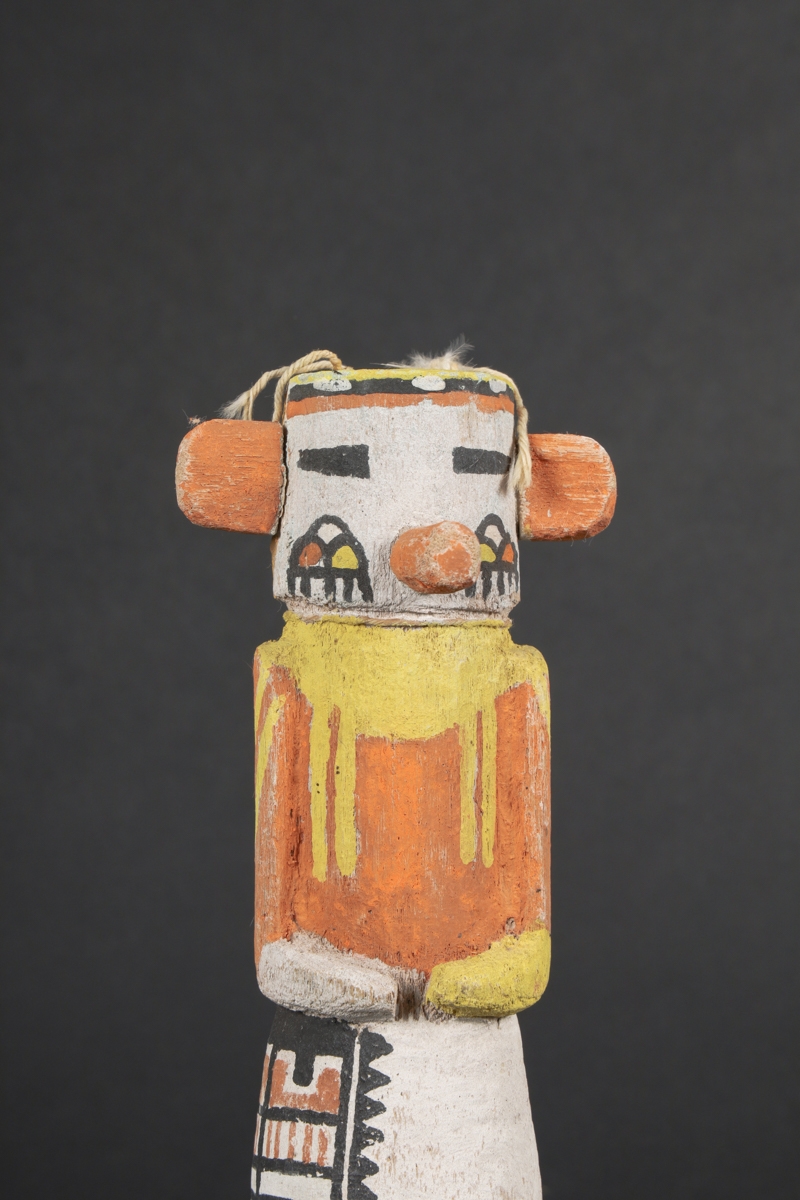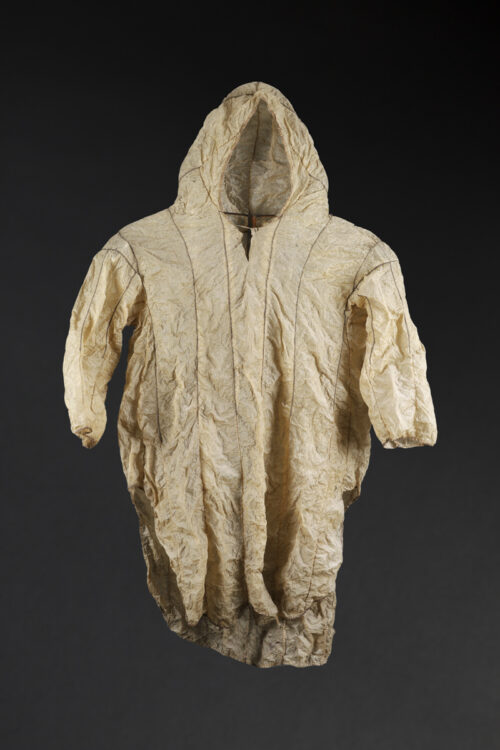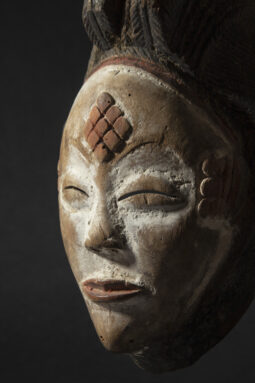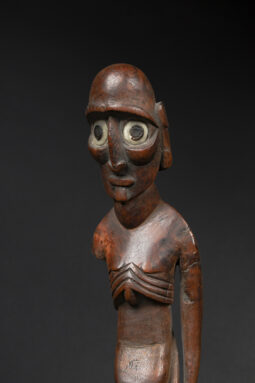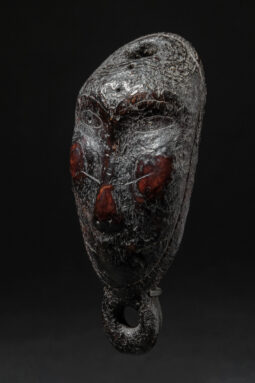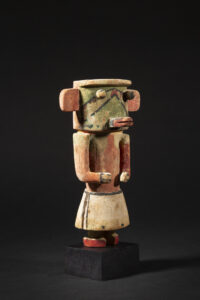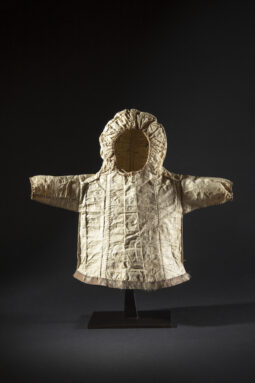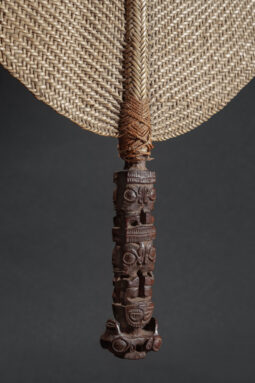North America | Arizona
Kachina doll
Arizona
Talavai Katsina – Dawn / Morning singer kachina doll
Hopi
Circa 1910-1920
Carved wood (cottonwood), pigments
Height: 20 cm – 7 ¾ in.
Provenance
Ex collection Wistariahurst Museum, Holyoke, Massachusetts
Ex Skinner Boston, 10 Sept. 2005 lot 251
Ex private collection
Talavai Kachina doll 20 cm / Galerie Flak
On request
Kachina dolls (or katsinam) represent spirits or gods from the pantheon of the Pueblo peoples in the American Southwest. Given to children, kachina dolls constituted a teaching tool allowing them to familiarize themselves with the spiritual world and perpetuating knowledge of the founding myths on which their society was based.
This doll represents Talavai Katsina (Morning Singer). Telavai or Talavai means dawn in Hopi language. According to Jesse Walter Fewkes, this Kachina appeared on the morning of the last day of the ceremonial cycle called Powamu (Bean Dance). Masked Talavai dancers appeared in pairs at sunrise on the roofs of adobe houses and sang to awaken the village. They gave offerings of bean sprouts to all the villagers.
The arrival of Talavai was a prayer for rain (hence the symbol of the clouds on the cheeks).
This doll represents Talavai Katsina (Morning Singer). Telavai or Talavai means dawn in Hopi language. According to Jesse Walter Fewkes, this Kachina appeared on the morning of the last day of the ceremonial cycle called Powamu (Bean Dance). Masked Talavai dancers appeared in pairs at sunrise on the roofs of adobe houses and sang to awaken the village. They gave offerings of bean sprouts to all the villagers.
The arrival of Talavai was a prayer for rain (hence the symbol of the clouds on the cheeks).
Explore the entire collection
